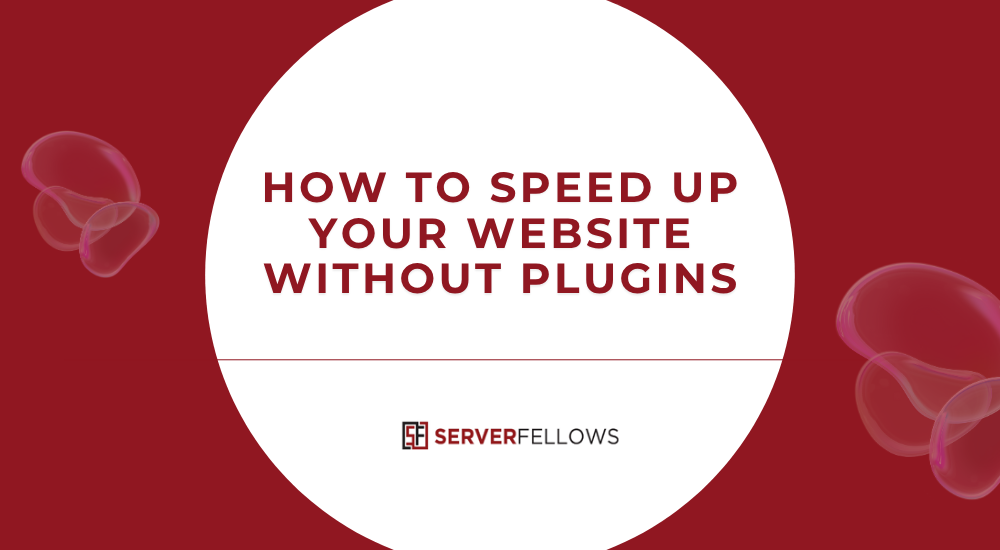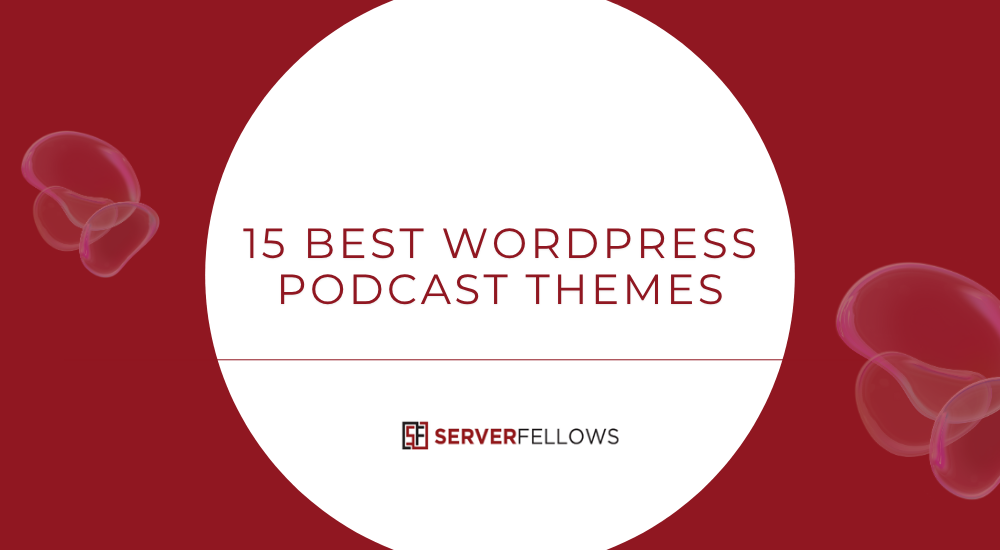
How to Speed Up Your Website Without WordPress Plugins
Most people believe speeding up a website requires loading it with plugins. While plugins can help, they often add bloat and increase load times. The truth is, you can speed up your website without WordPress plugins using smarter hosting choices, coding best practices, and optimization techniques.
Fast websites don’t just feel better—they perform better. A speed-optimized site ranks higher in search engines, keeps users engaged, and boosts conversion rates.
Your business deserves hosting that grows with you.
⚡ Enjoy blazing-fast hosting with Serverfellows.com — hosting built for performance.
Why Speeding Up a Website Without Plugins Matters
Before diving into practical strategies, it’s important to understand why relying less on plugins is beneficial:
- Plugins increase complexity: Each plugin adds extra code, which can slow performance.
- Security risks: Outdated or poorly coded plugins create vulnerabilities.
- Compatibility issues: Too many plugins can conflict with each other.
- Dependence: Relying only on plugins limits long-term scalability.
By learning how to speed up your website without WordPress plugins, you’re future-proofing your site while making it leaner and more efficient.
Practical Ways to Speed Up Without Plugins
Here are actionable methods you can use to accelerate your website—no plugins required.
1. Choose Fast Hosting
Your hosting provider is the foundation of website performance. A slow server will always limit your speed, no matter how much optimization you do.
Look for hosting that offers:
- SSD storage for faster read/write operations.
- Built-in caching to deliver content quickly.
- CDN integration for global performance.
At Serverfellows.com, these features come built-in for effortless speed.
2. Optimize Images Before Uploading
Large image files are a common reason websites slow down. Instead of relying on plugins to compress them after upload:
- Convert images to WebP or AVIF format.
- Use tools like TinyPNG, Squoosh, or Photoshop before uploading.
- Keep dimensions exact—don’t upload a 4000px image if you only need 800px.
This ensures your site loads fast without extra processing.
3. Minify and Combine Code
HTML, CSS, and JavaScript often contain unnecessary spaces, comments, and line breaks. Manually minifying them can reduce file sizes drastically.
Steps you can take:
- Run your code through free minification tools (e.g., CSSNano, UglifyJS).
- Combine multiple CSS/JS files into one to reduce HTTP requests.
- Remove unused code snippets.
This keeps your website lightweight and quick to load.
4. Implement Browser Caching
Browser caching allows repeat visitors to load your site faster by storing static resources locally.
How to do it without plugins:
- Add caching rules in your
.htaccessfile. - Set long expiration dates for images, CSS, and JS.
- Use HTTP headers like
Cache-ControlandExpires.
Result: returning visitors enjoy lightning-fast load times.
5. Enable GZIP or Brotli Compression
When files are compressed before being sent to a browser, they load much faster.
How to enable:
- Add compression directives in your
.htaccessfile. - Many hosts allow toggling GZIP or Brotli in their control panels.
This single step can cut file transfer sizes by up to 70%.
6. Reduce Redirects
Every redirect adds an extra HTTP request, delaying page load.
- Avoid unnecessary chains like
http → https → www → final. - Use direct links internally.
- Fix broken links instead of redirecting them endlessly.
Fewer redirects = faster pages.
7. Keep Hosting Server Close to Your Audience
Server location impacts latency. The closer your server is to your visitors, the faster your site loads.
For example:
- A U.S. audience benefits from U.S. servers.
- A European audience benefits from EU servers.
Choosing the right data center drastically improves speed.
8. Optimize Your Database
A bloated database slows down queries. Instead of relying on optimization plugins:
- Regularly remove unused tables and revisions.
- Clean spam comments and old transients.
- Use tools like phpMyAdmin or your host’s control panel for manual cleanup.
A lean database = faster response times.
9. Use a Content Delivery Network (CDN)
Even without plugins, you can integrate a CDN manually by adjusting DNS and settings in your hosting panel.
Benefits:
- Delivers cached content from the nearest server.
- Reduces latency globally.
- Handles traffic spikes better.
10. Optimize Fonts
Fonts may seem minor but can add significant load time.
- Limit custom font families.
- Use system fonts where possible.
- Host fonts locally instead of relying on third-party calls.
11. Limit External Scripts
Third-party scripts (ads, trackers, social widgets) often slow down sites.
- Remove unnecessary scripts.
- Load scripts asynchronously or defer them.
- Self-host libraries like jQuery instead of pulling from CDNs.
12. Monitor Performance Without Plugins
Instead of plugin-based speed tests, use external tools like:
- Google PageSpeed Insights
- GTMetrix
- WebPageTest
These give accurate reports without adding weight to your website.
Why Website Speed Matters
Website speed impacts more than just user experience—it affects the entire success of your site.
1. Boosts SEO Rankings
Google considers page speed a direct ranking factor. Faster sites appear higher in search results.
2. Increases Conversions
Research shows a 1-second delay can reduce conversions by 7%. Faster sites win more customers.
3. Improves User Satisfaction
Visitors expect pages to load in under 3 seconds. A slow site increases frustration and abandonment.
4. Lowers Bounce Rates
When users don’t have to wait, they stick around longer, explore more pages, and engage with your content.
FAQs on Website Speed
Do plugins always slow websites down?
Not always, but too many or poorly coded plugins can significantly slow down your site.
Can I optimize speed myself?
Yes. Many improvements—like compressing images or enabling caching—don’t require advanced coding skills.
Is speed only about hosting?
No. While hosting is the foundation, optimizations like image compression and caching also play major roles.
Can I avoid plugins completely?
Yes. With the right hosting, manual optimizations, and best practices, you can have a fast site without relying on plugins.
Conclusion
You don’t need dozens of plugins to make your site fast. By learning how to speed up your website without WordPress plugins, you’ll not only improve speed but also security, scalability, and long-term performance.
✅ Optimize hosting.
✅ Compress and cache files.
✅ Minify code and images.
✅ Reduce redirects.
✅ Monitor performance consistently.
The result? A fast, user-friendly website that ranks better and converts more visitors.
Call to Action
Ready to experience blazing-fast websites without plugin bloat?
Choose Serverfellows.com — hosting built for speed.


